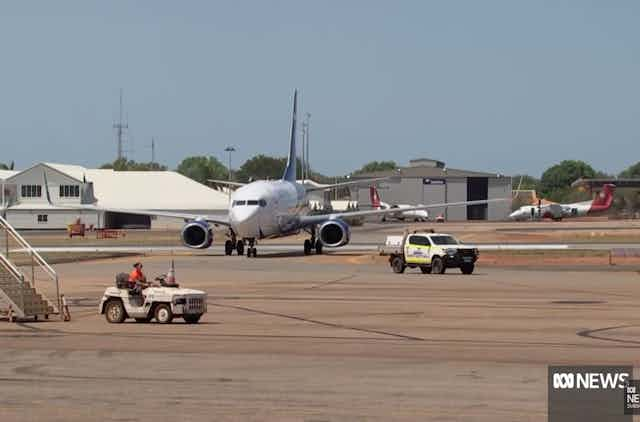The 39 men who arrived illegally on the coast of north Western Australia last week were flown to Nauru on Sunday.
The men came in one boat, although they were found on Friday in two or three groups. There is no official information on where they are originally from, but reports have named Pakistan, Bangladesh and India. They travelled from Indonesia.
The boat’s arrival immediately reactivated the political debate over border security, with the opposition claiming the government has lost control of the border.
But Rear Admiral Brett Sonter, Commander of the Joint Agency Task Force Operation Sovereign Borders, had a thinly-veiled slap at the opposition, warning against statements that undermine the border policy and encourage people smugglers.

He said in a statement: “The mission of Operation Sovereign Borders remains the same today as it was when it was established in 2013: protect Australia’s borders, combat people smuggling in our region, and importantly, prevent people from risking their lives at sea.
"Any alternate narrative will be exploited by criminal people smugglers to deceive potential irregular immigrants and convince them to risk their lives and travel to Australia by boat.”
But opposition leader Peter Dutton insisted Anthony Albanese “can’t look the Australian people in the eye and honestly tell them that Operation Sovereign Borders is operating as it did under a Coalition government”.
Dutton said the Coalition would seek a briefing on the incident “in due course”.
The Prime Minister highlighted Sonter’s “very strong comments about the need for […] politicians to not politicise national security”.
Albanese accused Dutton of “showing, with his overblown rhetoric and with his overreach on this issue […] that he’s not interested in outcomes or in the Australian national interest. As usual, he’s just interested in politics.”

